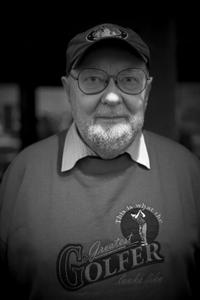Pavel Vošický A Stroll through the Century
Galerie 1 / Gallery 1
20 May 2014 - 20 April 2014
Curator David Oesterreicher
It is Lent. For centuries before Easter, audiences were reminded of the great mysteries of life and death in theatrical plays. Passover dramas begin with Jesus’s question to his disciples at Caesarea Philippi, “Who do people say the Son of Man is?” They said to him garrulously something along the lines of: The people are not sure, but everybody charges you with something, expects something, each one asks for something different — you can go mad if you want, but you won’t please everyone. At the time he answered with a clearly limited explanation of what he expects from himself compared to all the beautiful and false expectations of those around him.
To tend to oneself is also the ancient command of both Chilon of Sparta as well as the wisdom of Socrates. Of course, this is a completely personal matter, so the universal definition of the “universal man” does not help us much — human being, homo sapiens sapiens, animal rationale, zóon logon echón, etc. — and just as little does science tell us about him. An animal with several noble qualities has already populated the entire planet and is heading into the cosmos, but when one recalls previous centuries he cannot feel exemplary or deserving of the title wise, not even rational, thoughtful et cetera. He is much more recognizable in Homer’s description of him in the Odyssey, “cunning but severely tested,” and in Aristotle’s simple definition: a “social animal,” that is, necessarily political.
Pavel Vošický is a political animal to an almost unbearable degree and much less an “artist” in the conventional sense of the word. He hesitated to exhibit his work because he does not believe that his images, their communications and sentiments (especially his moderated anger), could be understood by anyone else. He is correct that life uniquely defies definition via general historical patterns. Ideology and its various regimes, just like the state school machine, require an asexual “history” — a history about everyone and no one. Within the context of such an interpretation of history, the opinion of a genuinely independent person can be perceived as a conspiracy, sabotage and general imbalance. Vošický grew up and persevered in conspiracies, sabotage and general imbalance. Thank God!
He went to jail at the beginning of the 1960s for public and straightforward proclamations of “hatred for the socialist regime,” an offence he had probably been committing since childhood. For the same offense he was sent to work with other politically unreliable elements in Bory. But for the same reason, he was accepted to by the president of the Academy of Arts, Architecture and Design, Adolf Hoffmeister who was himself a clever and nimble footed Communist.
Vošický emigrated after 1968 and in America worked both politically and artistically in senatorial and presidential campaigns. One could call him a successful campaign art director. In addition he studied in Washington libraries and discussed his outwardly both bizarre and realistic theories with anyone who would listen — including various well-known specialists as well as eyewitnesses to unique historical events. From all of this he put together his unique testimony to his times, which often changed based on newly acquired pieces of information. Adhering to no system, he faithfully observed and followed reality.
The pictures and drawings that show something of his vision in an almost poster- or comic strip manner are understandably only a reflection. Several dozen pen drawings from the 1960s to the 90s were available to the author; the rest were lost somewhere on his travels. Through a concurrence of fortunate oversights, Vošický’s explanation of Czech history appeared on public television as a documentary.
For ten years now, passers-by notice P. Vošický and how intensively he uses a knife to scratch out left and right his black advertising post Through this unpretentious but permanent activity — unique performances and demonstrations — he precisely captures the feebleness or even absence of practical political work. At the same time, we can compare his achievements to the nonsense of contemporary (conceptual) art. Only at certain points in his work does he shout or make threatening gestures. Otherwise, he “keeps his mouth shut and keeps on working,” which is truly “the most beautiful.”
David Oesterreicher





